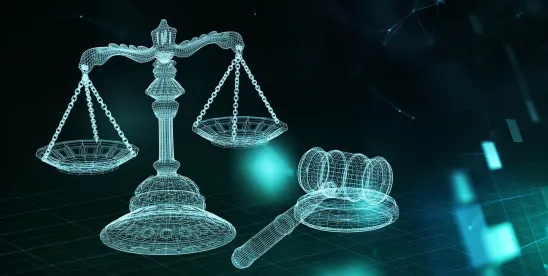Texas may not have the most regulations on artificial intelligence out there, but it was the first to regulate the use of “deep fakes” in elections.
Back in 2019, Texas passed SB751 – which is now Tex. Elec. Code Ann. § 255.004. It reads as follows:
Now, many of you are aware of § 255.004’s general existence. Obviously, this is not breaking news. But some of you may not be aware that § 255.004(b) was held to be unconstitutional last year in Ex parte Stafford, 667 S.W.3d 517 (Tex. App. 2023), petition for discretionary review granted (Aug. 23, 2023). In Ex parte Stafford, subsection (b) of § 255.004 of the Texas Election Code was deemed unconstitutional because it was overly broad and not narrowly tailored – thus infringing on First Amendment rights. The court found that the law’s broad language potentially restricted not only false or deceptive speech intended to mislead voters but also encompassed legitimate forms of expression, such as anonymous speech and satire, which are protected under the First Amendment.
So where does that leave § 255.004(d)?
§ 255.004(d) criminalizes the creation and distribution of deep fake videos intended to deceive, within 30 days of an election. The specificity of this legislation in targeting a clearly defined malicious activity — creating highly realistic but entirely fabricated representations of candidates — supports its potential to withstand constitutional scrutiny. Unlike broader restrictions that may inadvertently cover protected forms of speech, this provision directly addresses a recognized harm: the significant potential of deep fakes to mislead voters and manipulate election outcomes.
§ 255.004(d)’s requirement that the deep fakes be created “with the intent to deceive” is crucial. This ensures that maliciously created content is targeted – thereby safeguarding other forms of expression, such as parody or satire, from falling within the law’s scope. This focus on intent helps to further narrow the statute’s application – aligning it with constitutional requirements for restricting speech.
Thus, in short, § 255.004(d) is likely to withstand any such challenge, and even if it did not, Texas legislators would be quick to remedy this as the use of AI in manipulating elections is a major concern at the national and state levels presently.
In fact, at the House Select Committee on Artificial Intelligence Artificial Intelligence & Emerging Technologies April 29, 2024, initial hearing, and as memorialized in the initial interim report, Andrew Cates suggested that the statute needs to be expanded in scope – as currently, it only covers videos, not other mediums – and the penalties increased. House-Select-Committee-on-Artificial-Intelligence-Emerging-Technologies.pdf (texas.gov) (check out pages 29-31).
Other Texas AI Legislation
Additionally, Texas passed Tex. Gov’t Code Ann. § 2054.601 back in 2019 which states:
“Each state agency and local government shall, in the administration of the agency or local government, consider using next generation technologies, including cryptocurrency, blockchain technology, and artificial intelligence.”
And most recently, Texas created the Artificial Intelligence Advisory Council (AIAC), Tex. Gov’t Code Ann. § 2054.622, which will play a critical role in guiding and evaluating the deployment of AI within Texas state agencies. The AIAC is comprised of a diverse group of experts—from lawmakers to academic professionals and legal experts. The AIAC is tasked with a comprehensive review of AI systems used by the state. Their responsibilities include assessing ethical considerations, reviewing the impact of AI on legal rights, and evaluating potential risks and benefits associated with AI applications. By December 1, 2024, the AIAC will provide a report to the legislature summarizing their findings and recommending policies to ensure AI technologies are used ethically in state government, safeguarding the privacy, liberty, and interests of Texas residents.




 />i
/>i
